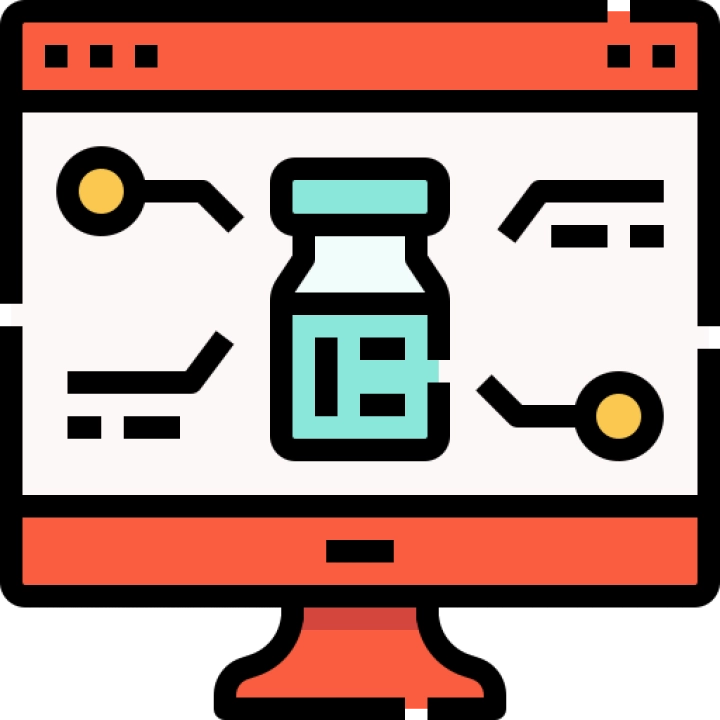College: Institute of Graduate Programs
The specialization in Drug Design and Development focuses on the principles and practices of designing, developing, and manufacturing pharmaceutical products. Students acquire skills in medicinal chemistry, pharmacology, drug formulation, clinical trials, regulatory affairs, and quality assurance, preparing them for careers in pharmaceutical research, drug development, manufacturing, regulatory bodies, and related fields.
Learning Objectives:
- Understand the principles of drug design and development.
- Develop skills in medicinal chemistry and drug discovery.
- Learn pharmacology and mechanisms of drug action.
- Explore drug formulation and delivery systems.
- Analyze clinical trial design and management.
- Develop critical thinking, problem-solving, and analytical skills.
- Gain practical experience through lab work and internships.
Main Syllabus:
- Introduction to Pharmaceutical Design and Development
- Overview of the principles, history, and current trends in pharmaceutical design and development.
- Medicinal Chemistry
- Basics of drug design and synthesis.
- Pharmacology
- Principles of drug action, pharmacokinetics, and pharmacodynamics.
- Drug Formulation and Delivery
- Techniques for designing and developing drug delivery systems.
- Clinical Trials
- Principles of designing, conducting, and managing clinical trials.
- Pharmaceutical Manufacturing
- Principles of manufacturing pharmaceutical products.
- Regulatory Affairs
- Understanding regulatory requirements and compliance in pharmaceutical development.
- Quality Assurance
- Principles of quality and safety assurance in pharmaceutical products.
- Pharmacokinetics and Pharmacodynamics
- In-depth study of drug absorption, distribution, metabolism, and excretion.
- Biomaterials and Biocompatibility
- Principles of designing biocompatible materials for pharmaceutical applications.
- Pharmaceutical Biotechnology
- Use of biotechnology in drug discovery and development.
- Practical Training
- Hands-on experience in pharmaceutical companies, research institutions, regulatory bodies, or related organizations.
- Capstone Project
- A comprehensive project applying pharmaceutical design and development skills, such as developing a new drug formulation, conducting a clinical trial, or designing a pharmaceutical manufacturing process.
Evaluation Methods:
- Analysis of drug design and development principles
- Medicinal chemistry projects
- Pharmacology projects
- Drug formulation and delivery projects
- Clinical trial projects
- Drug manufacturing projects
- Regulatory affairs projects
- Quality assurance projects
- Pharmacokinetics and pharmacodynamics projects
- Biomaterials and biocompatibility projects
- Pharmaceutical biotechnology projects
- Internship reports
- Capstone projects and presentations
Recommended Textbooks:
- "Introduction to Drug Design and Development"
- "Medicinal Chemistry"
- "Pharmacology"
- "Drug Formulation and Delivery"
- "Clinical Trials"
- "Drug Manufacturing"
- "Regulatory Affairs"
- "Quality Assurance"
- "Pharmacokinetics and Pharmacodynamics"
- "Biomaterials and Biocompatibility"
- "Pharmaceutical Biotechnology"
Prerequisites:
Basic knowledge in chemistry and biology and an interest in drug design and development.
Duration of the Specialization:
Typically 4 years to obtain a Bachelor's degree in Drug Design and Development.
Certification:
Graduates can obtain certifications such as:
- Certified Pharmaceutical Professional (CPP)
- Certified Clinical Research Professional (CCRP)
- Certifications in specific pharmaceutical programs and technologies
Target Audience:
Aspiring pharmaceutical scientists, drug developers, clinical trial managers, regulatory affairs specialists, quality assurance managers, and professionals seeking careers in pharmaceutical companies, research institutions, regulatory bodies, and related fields. This specialization equips students with the scientific, technical, and regulatory skills necessary to excel in drug design and development, supporting careers in various roles within pharmaceutical companies, research institutions, regulatory bodies, and related fields. The program provides comprehensive education in principles of drug design, medicinal chemistry, pharmacology, drug formulation, clinical trials, drug manufacturing, regulatory affairs, quality assurance, pharmacokinetics, biomaterials, pharmaceutical biotechnology, and practical experience through lab work and internships, preparing students for successful careers in the field.

